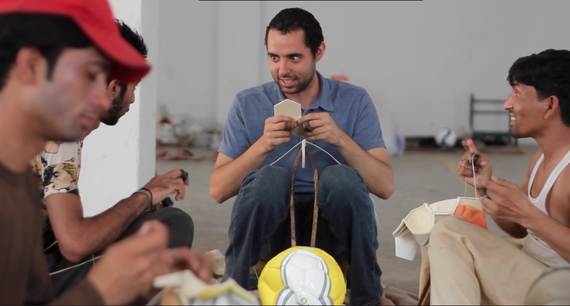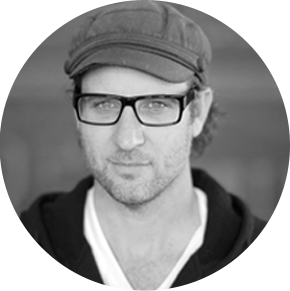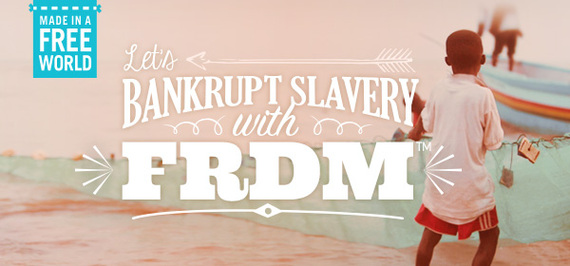Robert Brett Belluomini, Communications Guru at Senda Athletics, contributed to this post
As the coffee warms up during a cold, rainy day in Berkeley, I find time to browse Facebook between my musings. Sifting through the statuses praising this drought salvaging day or condemning the inconvenience of it all, a status about an old-school T.V. catches my attention.
"Our children will never know the struggle of having to get up to change the channel" my friend writes.
Obviously, the status was all in good fun. My friend would never insinuate that having to get up to change the already staticky channel was a character building endeavor, but it indirectly brought up a good topic for discussion. Our kids will never know exactly what our world is like.
It's something we all say: 'We should leave our planet in better shape than we left it. We want the next generation to live in a better world than the one we were given.'
In order to affect change in the world, there needs to be more socially conscious alternatives in everyday products. The problem is it's difficult to convince consumers to act in a new, sustainable way. From the consumers' perspective, the shift has to come from being willing to buy less, but better quality, products. It's one of the main goals we have at Senda, but it can be difficult to convince consumers who are used to extremely low prices to make the switch. These are the same growing pains most industry-changing products go through, and socially responsible products are no exception.
It's also difficult when people have no idea where their products come from. Most of the time, the product may as well have appeared out of thin air. "The challenge is that most slavery exists at the murky bottom of supply chains" said Justin Dillon, chief executive at Made In A Free World. "Human rights abuses have sustained against well-meaning catharsis for hundreds of years." And for that, Justin knows that demonizing companies or consumers is the wrong approach. "Really the goal is to amplify the conversation between the consumer and the producer," Mr. Dillon said. "Our torches and pitchforks are out for the slave traders, not the multinationals."
By developing a new software, called FRDM, that lets you track how many slaves worked on your product, Made In A Free World has put the tools to take a stand directly in your hand. Senda couldn't be more proud to be one of the first 9 Made In A Free World companies this holiday season. No one company can change the face of consumerism, so we are happy to join a group of responsible and courageous businesses that are showing that it is possible to do well and do good at the same time.
Looking at products from the past, it's still easy to be optimistic about ethically made products of the future. A similar thing happened with other difference making products like organic produce or non-toxic soap. The motives that drive sustainable products are the same motives that drive ethically made products. The key is in presenting that value to the consumer in a way that matters to them. If we can create a product that is better than the competitor but ethically produced, we can navigate the catharsis Mr. Dillon talks about in an efficient way.
Industry changing products present solutions to problems people didn't know they necessarily had. Too many people don't know there are Fair Trade options, better yet, what Fair Trade even means. We can learn from something like 'global warming'. The message needs to be clear and concise, which is why calling it 'climate change' makes way more sense.

Workers at a Fair Trade soccer ball factory in Pakistan enjoy good working conditions, and receive premiums to invest in their communities
The truth is that the cycle of social advancement is exactly that, a cycle. Our social problems are not the problems of future generations, but the solutions will present themselves in exactly the same way. Our children will not know a world without cell-phones; their young children may not be able to comprehend a world where those phones were made by people exposed to dangerous chemicals and paid less than living wages. They will have new problems with relatable answers.
In the end, as our cultural consciousness wakes up to the horrors of world-wide working conditions, the people choosing to make a difference will share a space in history with the innovators of yesterday and tomorrow.
So as I sit here, still sipping my Fair Trade coffee, I realize that an entire industry was filtered out because the alternative was distinctively better.
The coffee and the change sit comfortably beneath my nose, foreign but familiar.


